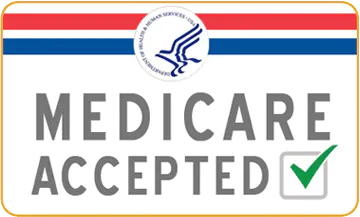Reduce Sodium for World Salt Awareness Week
Check the label! This year's World Salt Awareness Week (February 29 - March 6) focuses on the need for clear and consistent nutrition labelling so consumers know how much sodium they are consuming each day and can choose foods with lower sodium.
Too much sodium increases your blood pressure, a leading risk factor for heart disease and stroke. Previous themes for World Salt Awareness Week have encouraged chefs, caterers, and the prepared food industry to decrease the amount of sodium they add to foods and to purchase lower sodium ingredients and products.
Why Is Reducing Sodium Important?
Consuming less sodium can help prevent or control high blood pressure, also known as hypertension, which is a leading contributor to death, disability, and costs from cardiovascular disease (CVD). CVD is the leading cause of death in the United States and a major factor in health disparities across different population groups. US spending on CVD in 2010 totaled an estimated $315 billion.
Most of the sodium we eat—more than 75%—comes from packaged, processed, store-bought, and restaurant foods. That means the sodium is in our food before we even buy it, and the salt you add to food during cooking or at the table is only a small amount of what you consume each day. CDC's Sodium and Food Sources Web page shows which food categories are the biggest contributors of sodium to your daily diet.
Many people are surprised to learn that foods that seem healthy, such as low-fat deli turkey or light salad dressings, can be high in sodium. In fact, the top sources of sodium in the American diet are bread and rolls, cold cuts and cured meats, and pizza. Learn more about the most common sources of sodium in our diets from CDC Vital Signs.
What would the nation gain if everyone could reduce daily sodium intake to 2,300 mg? Such a reduction has been estimated to
- Reduce cases of high blood pressure by 11 million.
- Save $18 billion health care dollars each year.
What You Can Do
During World Salt Awareness Week and every week of the year, you can reduce your sodium intake by following the tips below. Check out CDC's Salt Web site to get more recommendations about reducing sodium in your diet and improving your heart health.
At the Grocery Store
- Check Nutrition Facts labels while shopping to find the lowest sodium options of your favorite foods.
- Limit purchases of processed foods high in sodium.
- Talk with your grocer about stocking lower sodium food choices.
Eating Out
- Ask your server for nutritional information, or check online before you go to find lower sodium options. menustat.org
- Ask the chef for no added salt in your meal. You can add some yourself if you find it is needed.
- Talk with the manager of your favorite restaurant about offering lower sodium food choices.
At Home
- Eat a diet rich in fresh fruits and vegetables. You can opt for frozen or canned fruits and vegetables, but select no-salt-added varieties and packages without sauce.
- Prepare more meals from fresh ingredients at home, where you can control added salt.
- Get enough potassium each day.1 Potassium can help reduce the effect of sodium on blood pressure and is found in many foods, such as bananas, potatoes, beans, and dairy products.
- Support initiatives that reduce sodium in foods sold in cafeterias and vending machines.
Sodium Reduction in Communities
CDC is working to lower sodium intake at the community level through the Sodium Reduction in Communities Program. This current 3-year effort encourages communities to reduce sodium in school meals, at senior centers, in restaurants, at convenience stores, and at government facilities, and among other food establishments.
You can help by spreading the word to similar organizations in your community to ask for "less salt, please."
SOURCE: www.cdc.gov/features/sodium/





Monday - Friday: 8:00AM to 8:00PM
Saturday & Sunday: 10:00AM to 6:00PM
